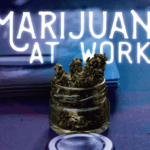In today’s performance-driven world, productivity has become a buzzword attached to success, hustle, and achievement. While numerous tools, apps, and methods claim to help people become more productive, many of these are built on assumptions that do more harm than good. Misguided beliefs about what productivity truly is can lead to burnout, frustration, and stagnation.
Let’s explore some common productivity myths and how they could be silently sabotaging your growth.
Myth 1: Multitasking Makes You More Efficient
One of the most persistent myths is that juggling multiple tasks at once boosts efficiency. In reality, multitasking divides your attention and reduces the quality of your output. Studies have shown that switching between tasks can decrease productivity by as much as 40%. When your brain has to repeatedly shift focus, it wastes valuable energy and time.
To truly maximize output, it’s better to work on one task at a time with full focus. This approach, often called monotasking or deep work, allows you to produce better results in less time.
Myth 2: The Longer You Work, the More You Get Done
Many people equate longer hours with higher productivity. However, putting in excessive hours without breaks often leads to diminishing returns. Fatigue sets in, decision-making slows, and creativity plummets.
Professionals and entrepreneurs who seek strategic guidance on optimizing performance often turn to specialized support services like https://mrpedrovazpaulo.com/ to redesign their workflow and goals in alignment with realistic outcomes. Sustainable productivity hinges on working smarter, not longer.
Myth 3: You Need to Be Busy All the Time
Busyness is often mistaken for productivity. A full calendar or a packed to-do list doesn’t necessarily mean you’re moving forward. True productivity involves intentional action toward clear, meaningful goals.
Constant activity without reflection leads to mindless execution. It’s essential to pause, prioritize, and assess whether your actions are aligned with your broader objectives. Working with a performance development coach can help professionals identify time-wasting behaviors and establish more effective routines.
Myth 4: You Need to Wake Up at 5 AM to Be Successful
The “early bird” narrative has been romanticized for years, but it doesn’t work for everyone. Not all high performers rise before dawn. Productivity is more about energy management than clock-based routines. Night owls can be just as effective as early risers when they work within their natural rhythm.
Instead of forcing yourself into a routine that doesn’t align with your lifestyle, it’s better to build habits around your peak hours of energy and focus.
Myth 5: Perfectionism Equals Productivity
Striving for perfection might sound admirable, but it often leads to procrastination. The fear of not doing something perfectly can stop you from starting at all. Productivity thrives on momentum. The goal should be consistent progress—not flawless output.
It’s more effective to iterate, get feedback, and improve along the way rather than waiting for the ideal conditions to begin.
Conclusion
True productivity isn’t about doing more—it’s about doing what matters most. Myths like multitasking, overworking, and perfectionism create illusions of progress but often drain motivation and clarity.
By unlearning these myths and adopting evidence-based habits, individuals can work with greater purpose and less stress. Recognizing the value of time, energy, and strategic planning is the first step toward sustainable success. Whether through self-awareness or external guidance, redefining productivity can make all the difference in your personal and professional growth.













